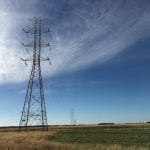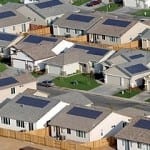Around The Web
How much plastic does it take to kill a turtle? Typically just 14 pieces
Did Usain Bolt win the space race?
Hen harrier disappears after satellite tag stops working
EU Market: EUAs keep falling as auction signals weaker demand
New ministry set-up raises questions over China’s ETS
Robots ahoy! Mapping Earth's surface
A road full of bottlenecks: Dutch cycle path is made of plastic waste
First path entirely made of recycled bottles, cups and packaging opens in Zwolle
The world’s first plastic bicycle path made of recycled bottles, cups and packaging has opened in the Netherlands, as part of a pilot that could see similar roads open up across the country.
The 30-metre path, made of recycled plastic equivalent to more than 218,000 plastic cups, is expected to be three times as durable as an asphalt alternative.
Continue reading...Analysts see bumpy road ahead for South Korea’s CO2 market
Cross-party climate change momentum in New Zealand
Cleaning up the Great Pacific Garbage Patch
Environment Minister Melissa Price
Tesla on track to offer “cheaper” Model 3 to Australian drivers
 Tesla reportedly ready to start producing “low cost” version of Model 3 soon, which would be good timing for Australian customers.
Tesla reportedly ready to start producing “low cost” version of Model 3 soon, which would be good timing for Australian customers.
The post Tesla on track to offer “cheaper” Model 3 to Australian drivers appeared first on RenewEconomy.
Turnbull will be asked to give evidence at $444m Great Barrier Reef grant inquiry
Former PM’s decision to resign from parliament means he could be compelled to appear if he refuses invitation
Malcolm Turnbull will be asked to appear before an inquiry examining a $443.8m grant to the Great Barrier Reef Foundation.
The Senate inquiry’s chair, Greens senator Peter Whish-Wilson, said on Thursday the committee had resolved to write to the former prime minister and request he give evidence at a future hearing.
Continue reading...Electric future? Global push to move away from gas-powered cars
Business and political leaders commit to make more vehicles emissions-free – and plan to bypass US government to do so
Political and business leaders gathering in San Francisco for a major climate change summit have committed to moving towards what was once a fantastical thought – the demise of the internal combustion engine in cars, trucks and other vehicles.
A group of 26 city, business and regional or state leaders, representing a 122m people around the world, have used the Global Climate Action Summit to call for car makers to quicken the pace of electric vehicle rollout. Twelve cities, including Santa Monica, Tokyo and Greater Manchester, have pledged to deploy only zero emission buses from 2025.
Continue reading...Comedy Wildlife Photography Awards - in pictures
Some of the finalists in this year’s competition, sponsored by the Born Free Foundation and designed to raise awareness of the natural world
Continue reading...Who killed the largest birds that ever lived?
Regulator’s report points to outrageous gaming of South Australia energy market
 Regulator's report into July 9 event in South Australia points to outrageous gaming of the energy market in that state. Customers are getting screwed, but it's not the fault of wind or solar.
Regulator's report into July 9 event in South Australia points to outrageous gaming of the energy market in that state. Customers are getting screwed, but it's not the fault of wind or solar.
The post Regulator’s report points to outrageous gaming of South Australia energy market appeared first on RenewEconomy.
Canadian Solar’s 100MWAC solar project wins Victorian Government support agreement
 Canadian has been awarded a Victorian government support agreement for its greenfield 100MWac Carwarp Solar Project in Australia.
Canadian has been awarded a Victorian government support agreement for its greenfield 100MWac Carwarp Solar Project in Australia.
The post Canadian Solar’s 100MWAC solar project wins Victorian Government support agreement appeared first on RenewEconomy.
CP Daily: Wednesday September 12, 2018
Home battery register in the works, as regulator gives AEMO the nod
 Australian Energy Market Commission makes final rule for AEMO to establish register of distributed energy resources in the NEM, including small-scale battery storage systems and rooftop solar.
Australian Energy Market Commission makes final rule for AEMO to establish register of distributed energy resources in the NEM, including small-scale battery storage systems and rooftop solar.
The post Home battery register in the works, as regulator gives AEMO the nod appeared first on RenewEconomy.



